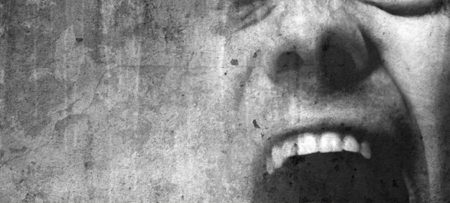20 results for tag: Recovery
How Iceland Got Teens to Say No to Drugs – The Icelandic Model
I become excited and inspired when I see concepts, ideas and methods that I use in my work validated by international scientists and authors. The two articles that I have included excerpts, both offer alternative ideas around the use and abuse of alcohol, tobacco and drugs. From my experience, combining these two perspectives is the core of my work with supporting and facilitating shifting patterns, behaviors, obsessions and addictions.
I typically integrate these three principles/methods for shifting unwanted patterns and behaviors.
- Exercises supporting the discovery and understanding of our patterns and thinking.
- Explore what we feel connected to, or the lack of connection, to people, animals, friends, family and our environment. Create a plan to improve and expand our connections. (Read Johann Hari's views on addiction and connection at bottom of this post.).
- Brainstorm interests, passions and activities that we have either enjoyed in our past, present or would like to explore, including creative expressions, physical activity, opportunities to connect with the natural world, or anything that inspires or stimulate us. We follow the brainstorming process by implementing some of these interests and activities into our life before or during launching into facilitating the shift in the unwanted behaviors. In short, let's find out what will inspire and stimulate you to replace the patterns, behaviors and addictions that are problematic. (This parallels the process Harvey Milkman researched in the U.S. and implemented in Iceland, discussed in the main article focusing on teens and addiction.)
Learning To Meditate
Learning to meditate is hard. This is my experience with learning to meditate. I was coming up on six months clean and sober. My sponsor's sponsor, which I jokingly used to call my grandsponsor, was coming up on 40 years sober. I used to enjoy talking with old Bill often. He was kind, respectful, direct and openhearted. These were all qualities that I had desired, but did not know how to express them myself, or know many people who did for that matter. So I used to like to talk with him whenever possible. He was one of the few people I trusted even a little.
One night after a meeting, Bill came over and sat next to me. He smiled that soft, gentle smile that typically held me feel safe, if only momentary. On that particular Friday night, I was not able to tap in to his smile in order to shift the sadness, desperation and frustration I was experiencing. Bill noticed this immediately. He leaned over, put his right hand on my left elbow, "How are you doing young man?". Bill was old enough that he forgot pretty much everyone's name, and we were all either Young Man or Young Woman, regardless of age or any other identifying factors.
I let out a deep sigh, and felt my belly clinch, "I'm not doing so good Bill. I'm going to meetings, I talk to my sponsor, I hang out with all recovering friends, I pray every night before I go to bed every morning when I wake up and I still feel miserable. I feel like it's never going to get better for me and there's nothing I can do about."
 ...
...
 ...
... Being Sober – Alcoholism Is About Pain; Not Drinking Too Much
Getting and staying sober is a monumental task. It takes an incredible amount effort and commitment, especially in the beginning. Getting sober isn't the goal though. The goal is to become at minimum a decent human being, if not an exceptional one. Somehow our culture has created this illusional that staying sober is the destination, it's not even close. Getting sober is the springboard to something better. Staying sober is not the goal like getting married isn't the goal in a relationship. The goal for both alcoholics and marriages is to be healthy, balanced and live your best life with solid, sustainable relationships that support love, connection and respect.
 ...
...
 ...
... Self-Sabotage – I Am Willing To Do Anything… But That
It is very common for clients whom I work with, when asked what are you willing to do to grow or improve your situation, to offer a very specific and inspiring response. "I am willing to do anything and everything to make things better!" A part of me gets really excited about their enthusiastic reply. My excitement and optimism still exist after 25 years of this kind of work, knowing that we are about to embark on the first stage of self-sabotage. Self-sabotage can, at times, be really obvious and others, very deceptive and tricky.
I take a deep breath and ask them are you willing to do____? Their enthusiasm and conviction that were on full display just a moment earlier disappear. Some combination of resentment, bitterness, fear, and/or anger replaces the enthusiasm. Self-sabotage has now planted its roots and is ready to dig in to do anything and everything except for "that".
 ...
...
 ...
... Change Is Possible – Change Really Is Possible
I am often asked a question that baffles me, "Can people REALLY change?". I am baffled because it astounds me that people do not recognize how we are all changing in large and small ways all the time. However, I do relate to the experience of feeling hopeless that I cannot change enough to enjoy life. This I understand. I can still recall clearly that night in October of 1989 when for a moment I felt life was not worth living. An image flashed across my mind of driving my car into my then girlfriend, who was standing right in front of me, followed by me crashing into the large oak tree across the street. It was clear in my mind. We were arguing in the street outside of her house in front of my car. In that moment, it made complete sense to me. I felt like there was no other viable option.
At the time, I was six months clean and sober in so-called recovery, things did not feel better. In fact, they felt worse. I did not believe I could change. I did not believe life could or would improve. I did not believe I was capable of rigorous honesty as the A.A. Preamble stated; "Those who do not recover are people who cannot or will not completely give themselves to this simple program, usually men and women who are constitutionally incapable of being honest with themselves. There are such unfortunates. They are not at fault; they seem to have been born that way. They are naturally incapable of grasping and developing a manner of living which demands rigorous honesty." I believed that I was not capable of being honest with myself, therefore, I could not recover. I was wrong.
A man who was forty years sober then told me if I wanted to change, I needed to tie my shoes differently. That was the beginning. All the successes I have enjoyed since that night began with one small choice. This is not some cute fable or a new age platitude. This is my real-life experience of change and growth.
 ...
...
 ...
... Women & Booze: Is Everything We Know About Alcoholism Wrong? – mindbodygreen.com
This is an interesting article on Women & Booze. The main thesis is that men and women interact with alcohol differently, therefore, Alcoholic Anonymous is not the best option for women, since many are not alcoholic according to the author. There are several important points she raises about women & booze such as the lack of ability of A.A, to adapt and update program elements that may not make sense any longer, or maybe never did. This is valid and I have presented similar thoughts before. In addition, the chapter, "To Wives" was not actually written by Lois Wilson, which further supports the claims of AA being anti-feminist Who ...
Open Up – School of Life
Open Up, a short video demonstrating the power of honesty and sharing our secrets. Communication is essential to creating and maintaining positive relationships. The risk seems too great but is it really? I encourage you to explore which is a greater risk, isolation and silence or sharing and connection?




